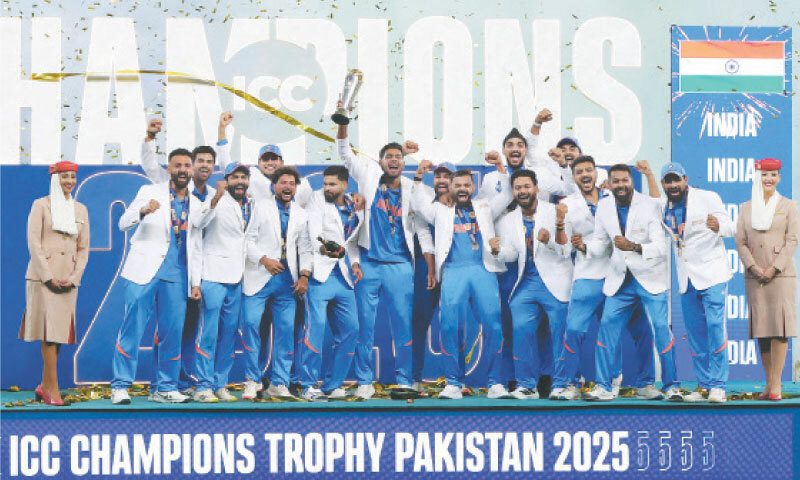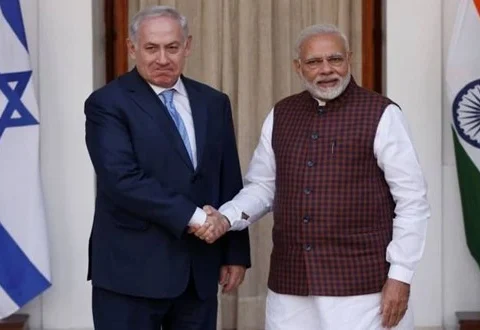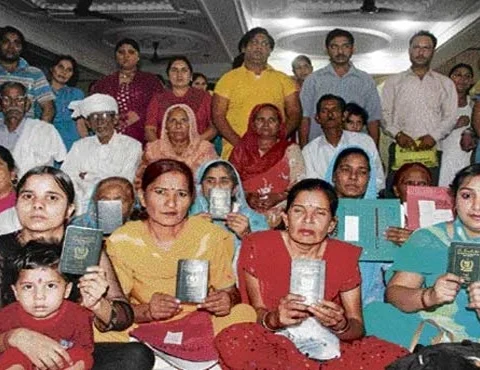India once again demonstrated its dominance in world cricket by securing the Champions Trophy 2025, defeating New Zealand in the final. The victory further cemented India’s status as one of the most formidable teams in the sport. However, while the celebrations were in full swing, little attention was given to the fact that Pakistan had officially hosted the tournament—at least on paper.
The hybrid model, introduced as a compromise, resulted in India playing all their matches in Dubai rather than in Pakistan. This arrangement significantly dampened the excitement for cricket fans in Pakistan, who had long awaited the return of major international tournaments to their home grounds. Ever since international teams stopped touring the country in 2009, Pakistani fans have been eager to witness top-level cricket in their own stadiums.
One would have expected the tournament’s conclusion to at least highlight Pakistan’s efforts in organizing the event. However, the final in Dubai felt more like a home game for India, with a sea of blue jerseys in the stands, Bollywood entertainment during breaks, and an awards ceremony that featured Indian cricket officials at the forefront. The absence of Pakistan Cricket Board (PCB) chairman Mohsin Naqvi from the presentation ceremony further added to the feeling that Pakistan’s role had been overshadowed. Instead, BCCI President Roger Binny was the one presenting the prestigious white jackets to the Indian players.
This situation highlights the influence India holds over international cricket. As the largest financial contributor to the sport, India wields significant power within the International Cricket Council (ICC). Its demands, including playing matches in neutral venues rather than traveling to Pakistan, were met without much resistance.
For Pakistan, this hybrid arrangement proved to be a major setback. The home team, led by Mohammad Rizwan, struggled throughout the tournament and failed to make an impact. Many fans were left disappointed, especially when New Zealand eliminated Pakistan in the group stages. While some Pakistani supporters shifted their backing to New Zealand in the final, India’s familiarity with the Dubai conditions gave them a significant advantage.
Cricket analysts have pointed out that such one-sided arrangements raise concerns about fairness in international tournaments. Under different circumstances, the final might have been held in Pakistan, giving their fans the opportunity to witness a global event firsthand.
However, from Pakistan’s perspective, there was a small silver lining. Had India won the trophy in Pakistan, it could have led to politically sensitive moments, such as Indian players receiving the trophy from Pakistani leadership—a scenario that might have carried implications beyond cricket. Instead, the current situation leaves room for Pakistan to focus on rebuilding and preparing for future challenges.
Looking ahead, the same hybrid format will likely apply to the T20 World Cup 2026, which is set to be co-hosted by India and Sri Lanka. Pakistan’s matches are already scheduled to take place in Sri Lanka, meaning the team will once again be playing away from home. With recent squad changes and new strategies in place, Pakistan will need to step up if they hope to challenge India’s growing dominance in the sport.
Only time will tell if they can turn the tables and reclaim their place among cricket’s elite.







